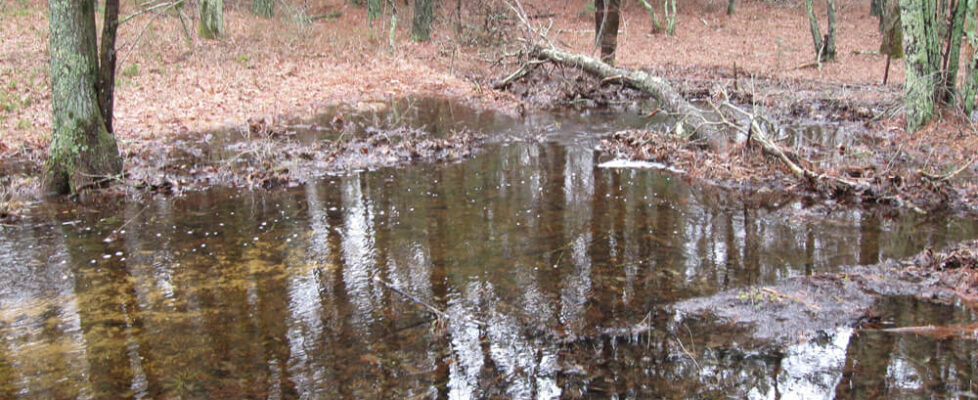It’s Conservation!
The following letter appeared in local newspapers and is shared with us here by the author Bonnie Van Slyke. Bonnie Van Slyke has been a member of the Charlestown Town Council for 8 years.
Charlestown Town Councilor Deb Carney did not reveal key details in her Letter to the Editor (Westerly Sun, October 25, 2022, “Is it conservation? Or is it confiscation?”). She then concludes that conservation restrictions are “confiscation.”
Ms. Carney is wrong. A conservation restriction has been determined to be a “reasonable regulation,” not a confiscation of property, and case law supports that determination. Conservation restrictions are a widely used tool throughout Rhode Island to protect open space, including wetlands and other sensitive areas, from unsuitable development.
Charlestown’s Planning Commission can require reasonable regulations, including conservation restrictions. Conservation restrictions (also called conservation easements) are used to keep open space as open space forever and are enforceable by the town should a violation of a restriction occur.
Ms. Carney and Margaret Hogan, an attorney for many developers in town, argue against using conservation restrictions. Ms. Hogan usually speaks of conservation restrictions as “takings.” Ms. Carney is currently calling them “confiscation.” Again, they are neither. Ms. Hogan and Ms. Carney both say they would prefer using private deed restrictions. However, enforcement of private deed restrictions would at best be complex, and private deed restrictions cannot continue in perpetuity.
The 11-acre parcel on Kings Factory Road that Ms. Carney describes in her letter is highly constrained by wetlands and wetlands buffers and has very limited buildable areas outside the wetlands. The owners of the two newly created lots will own and can use their properties. The town will not own the open space or any part of these properties. The conservation restriction will better assure what was promised when the 11-acre parcel was subdivided—a promise to protect the wetlands as open space forever.
The answer to Ms. Carney’s question then is this: It is conservation. It is not confiscation. “It” is intended to protect valuable, but fragile natural resources on which our town depends for its drinking water, clean air, recreation, and more—ultimately for our citizens’ health, safety, and welfare.
According to the recent Town-Wide Survey, 94% of residents rank protecting the environment and natural resources as their top priority. They also appreciate Charlestown’s steady, well-managed, accountable government.
On November 8 vote for protecting our environment and for the fair, representative, responsive, transparent, and ethical government that Charlestown has experienced for the last decade—good government led by leaders elected by the voters to represent ALL the citizens of the town and not special interests.
Vote for Susan Cooper, Peter Gardner, Ann Owen, Joshua Vallee, and David Wilkinson for Town Council; for Walter Mahony, Carol Mossa, and Lisa St. Godard for Planning Commission; and for Craig Louzon, Linda Lyall, and Donna Chambers for School Committee. These Independent candidates, who are endorsed by the Charlestown Citizens Alliance, are exceptionally well qualified, have fresh ideas, and will continue to work hard for our environment, economy, and future.

You can learn more about Bonnie at her profile page.
The banner image is a photograph of a vernal pool in Charlestown by Linda Fabre. Vernal pools are an example of a valuable and increasingly threatened wetland ecosystem. Efforts should be made to protect remaining vernal pools, as their disappearance marks the loss of rare and important habitat and the plant and animal species associated with them.

October 31, 2022 @ 12:11 pm
Thanks Bonnie for correcting the misinformation being spread by the unprincipled folk who want to take over the running of the town and change it from a well-run town of great rural character run by residents according to the wishes and values of the majority of the residents …. to a town run by business owners, developers, and their lawyers run for their own personal business interests.